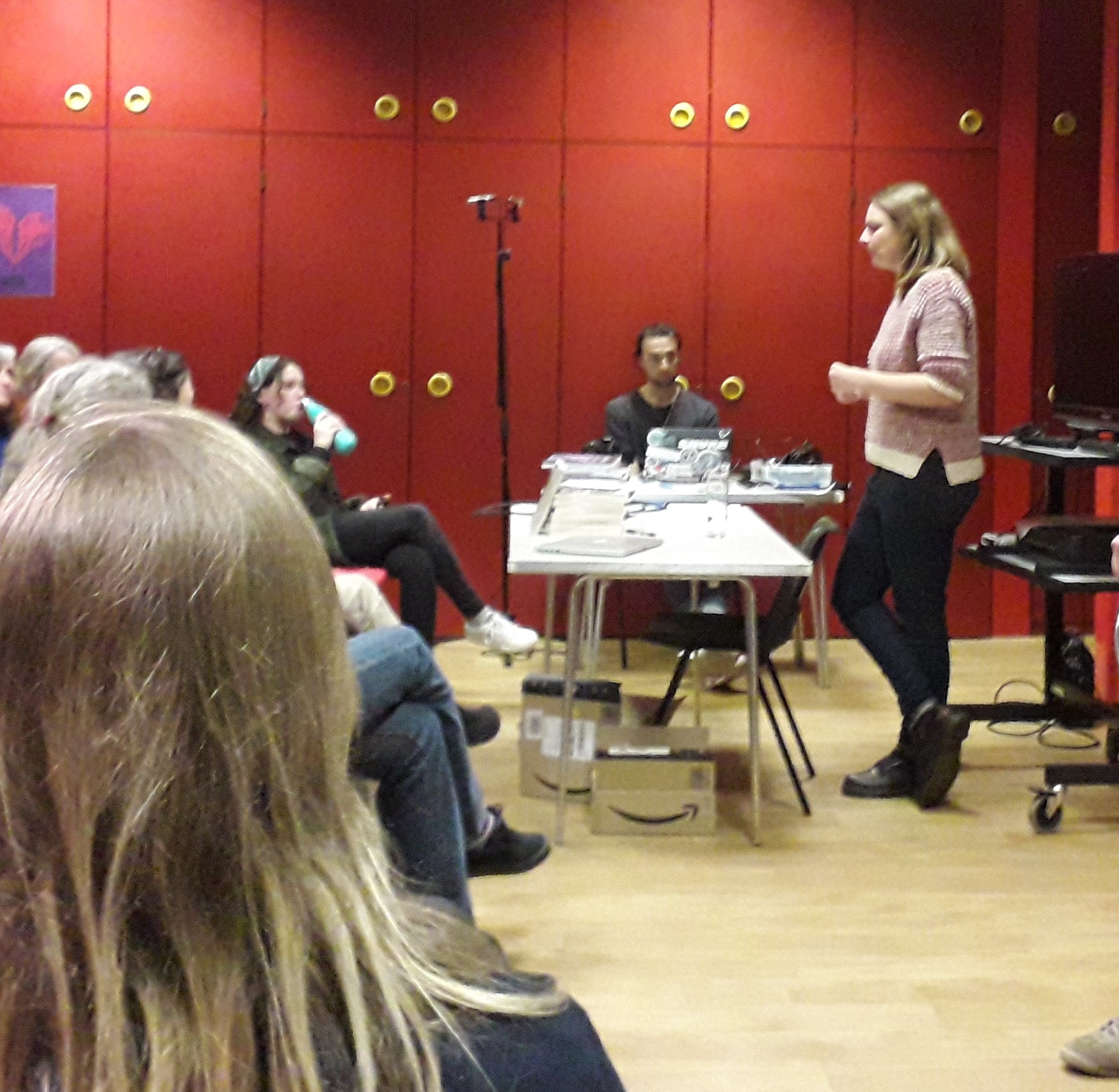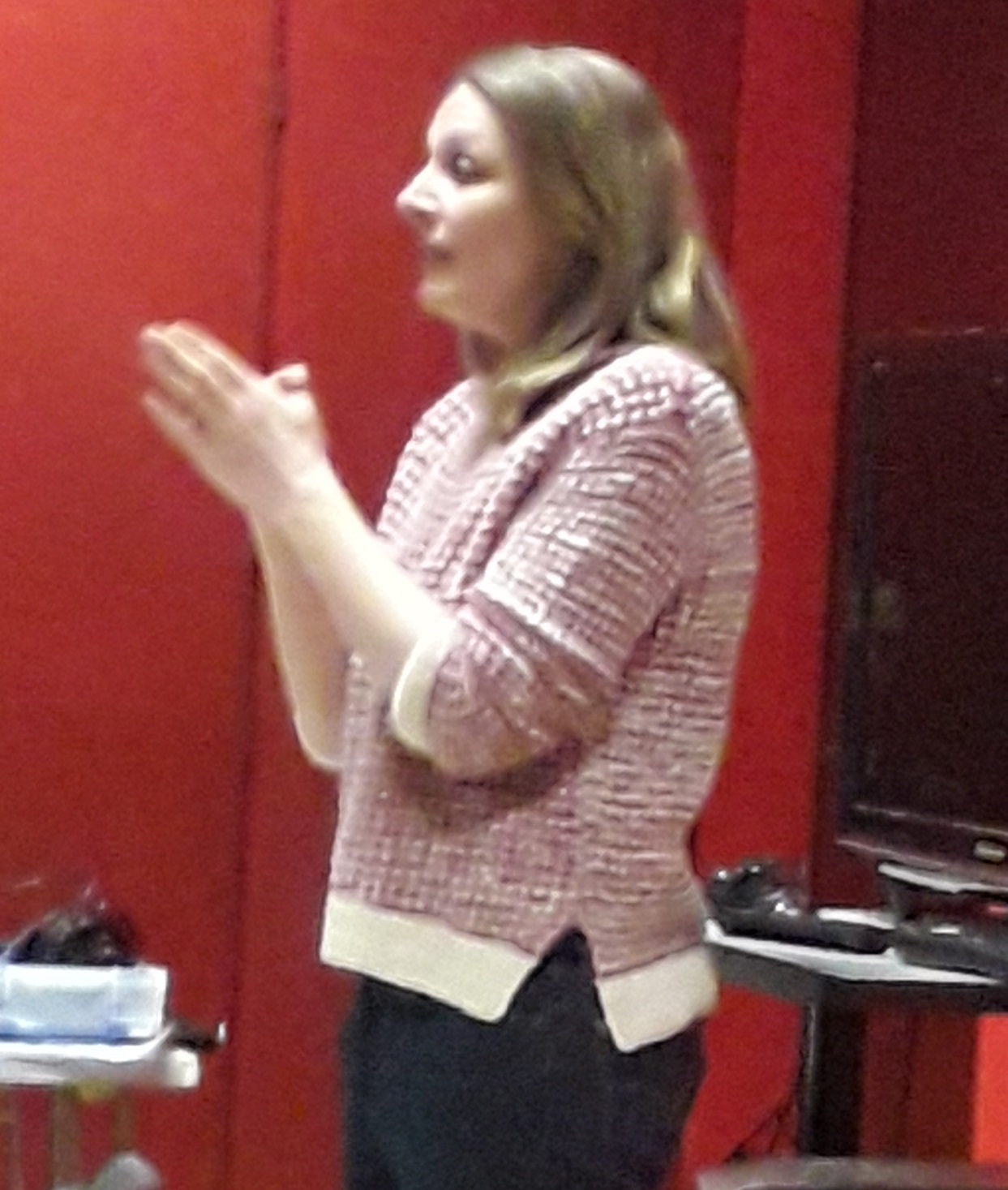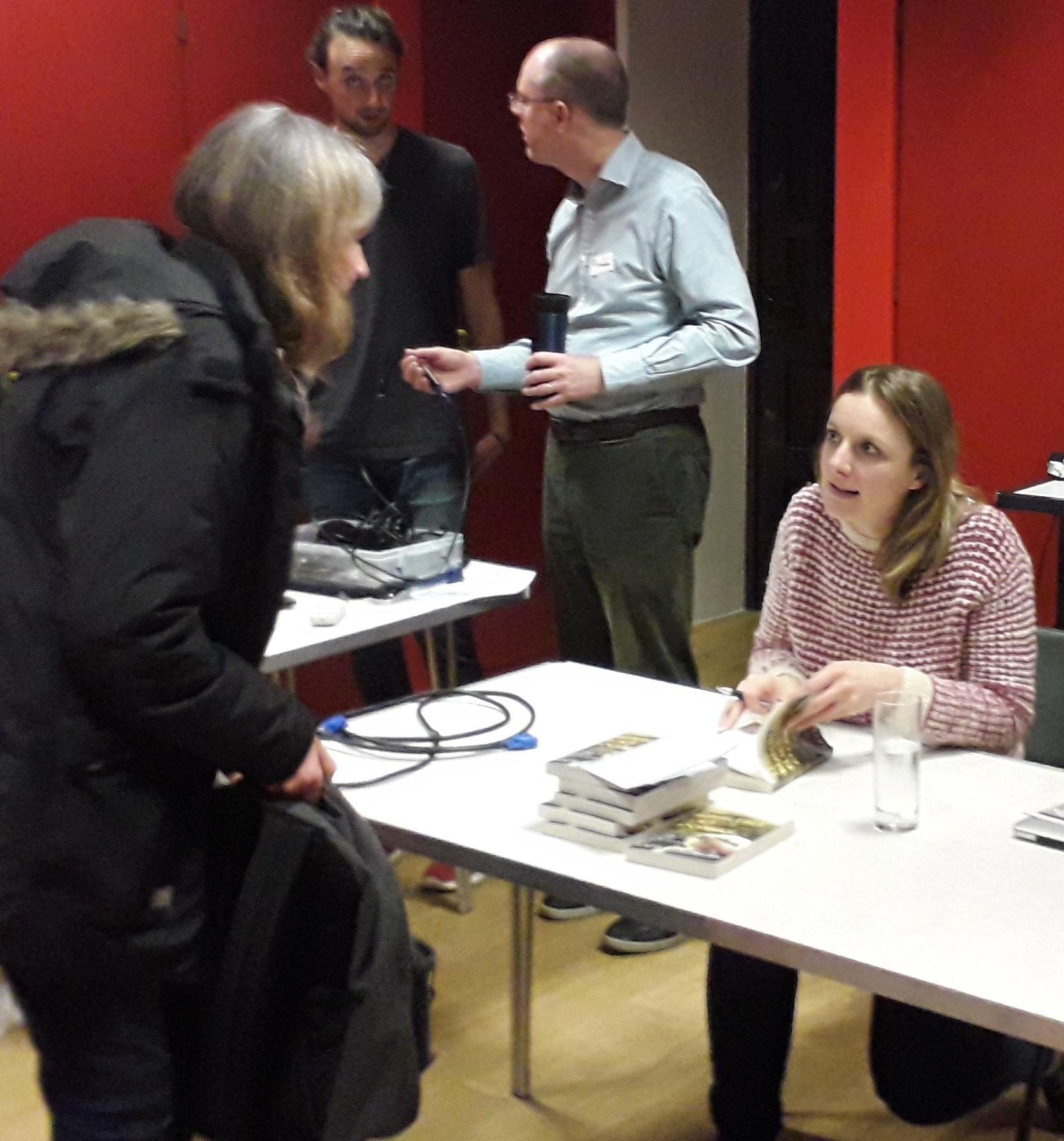 Abraham Lincoln
If given the truth, the people can be depended upon to meet any national crisis...
Abraham Lincoln
If given the truth, the people can be depended upon to meet any national crisis...
 Guildford news...
for Guildford people, brought to you by Guildford reporters - Guildford's own news service
Guildford news...
for Guildford people, brought to you by Guildford reporters - Guildford's own news service
How Does Your Own Garden Grow Wildlife-Friendly? ‘It’s All About sex’
Published on: 26 Jan, 2020
Updated on: 26 Jan, 2020
Springwatch celebrity Kate Bradbury told a packed and keen audience in Guildford on Thursday (January 23): “It’s all about sex.”
In a lively talk on rewilding, the author, journalist and gardener spoke about simple ways of attracting birds and bees to the UK’s 27 million gardens.
Complex flowers bred only for their looks didn’t help, she said. “The sex parts of flowers are in the centre. If you can’t see them, it’s no good for the bees.”
About 100 people, including councillors, attended the talk at St Nicolas Church in the town centre, organised by the Guildford branch of the environmental activist group, Extinction Rebellion (XR).
Ms Bradbury, an XR supporter, described how to make the huge resource of gardens in the UK, however small, immediately attractive to wildlife. “We can prevent extinctions one garden at a time.”
She said wildlife needed shelter, food and water and quite simple changes in gardens can work quickly. “In less than two months, I had wildlife established in my small basement-flat garden.”
People should talk to neighbours and help set up compost heaps for shelter, she added, especially as an open pile so animals can get to it. Ponds, even only a metre wide and 300mm deep with shallow sides, would attract insects and animals.
Ms Bradbury said grass should be allowed to grow, and log piles, bird-baths, letting some vegetable plants flower to encourage flies would help, as well as planting trees. Native species were best, she added, because “the longer a plant has been growing in the UK, the better it is for our wildlife”.
“If you have room to plant a tree, plant five. You will be dead by the time they are too big.”
Ms Bradbury’s books include The Wildlife Gardener and The Bumblebee Flies Anyway and they are available in bookshops and online.
Responses to How Does Your Own Garden Grow Wildlife-Friendly? ‘It’s All About sex’
Leave a Comment Cancel replyPlease see our comments policy. All comments are moderated and may take time to appear.
Recent Articles
- Guildford Institute’s Crowdfunding Project for Accessible Toilet in its New Community and Wellbeing Centre
- Letter: Guildford – Another Opportunity Missed?
- Letter: GBC’s Corporate Strategy – Where Is the Ambition?
- My Memories of John Mayall at a Ground-breaking Gig in Guildford Nearly Six Decades Ago
- Westborough HMO Plans ‘Losing the Heart of the Street’ Says Resident
- College Invests to Boost Surrey’s Economy and Close Digital Skills Gap
- Community Lottery Brings Big Wins for Local Charities
- GBC Housing Plan Promises ‘A Vibrant Urban Neighbourhood’ Near Town Centre
- Hospital Pillows ‘Shortage’ at the Royal Surrey
- Updated: Caravans Set Up Camp at Ash Manor School


Recent Comments
- Ian Macpherson on Updated: Main Guildford to Godalming Road Closed Until August 1
- Sara Tokunaga on GBC Housing Plan Promises ‘A Vibrant Urban Neighbourhood’ Near Town Centre
- Michael Courtnage on Daily Mail Online Reports Guildford Has Highest-paid Council Officer
- Alan Judge on GBC Housing Plan Promises ‘A Vibrant Urban Neighbourhood’ Near Town Centre
- John Perkins on GBC Housing Plan Promises ‘A Vibrant Urban Neighbourhood’ Near Town Centre
- S Collins on GBC Housing Plan Promises ‘A Vibrant Urban Neighbourhood’ Near Town Centre
Search in Site
Media Gallery
Dragon Interview: Local Artist Leaves Her Mark At One of England’s Most Historic Buildings
January 21, 2023 / No Comment / Read MoreDragon Interview: Lib Dem Planning Chair: ‘Current Policy Doesn’t Work for Local People’
January 19, 2023 / No Comment / Read MoreA3 Tunnel in Guildford ‘Necessary’ for New Homes, Says Guildford’s MP
January 10, 2023 / No Comment / Read More‘Madness’ for London Road Scheme to Go Ahead Against ‘Huge Opposition’, Says SCC Leader
January 6, 2023 / No Comment / Read MoreCouncillor’s Son Starts Campaign for More Consultation on North Street Plan
December 30, 2022 / No Comment / Read MoreCounty Council Climbs Down Over London Road Works – Further ‘Engagement’ Period Announced
December 14, 2022 / No Comment / Read MoreDragon Interview: GBC Reaction to the Government’s Expected Decision to Relax Housing Targets
December 7, 2022 / No Comment / Read MoreHow Can Our Town Centre Businesses Recover? Watch the Shop Front Debate
May 18, 2020 / No Comment / Read More












Harry Eve
January 28, 2020 at 9:55 am
I regret that I did not get to this meeting but, as a wildlife gardener, I can thoroughly recommend the practice.
It is far more rewarding and interesting than traditional gardening.
The best lawn, in my opinion, is the one with the most species in it, all allowed to flower and seed or, in other words, a meadow.
Julia Shaw
February 3, 2020 at 8:04 pm
Made our log pile today. Thank you for the inspiring talk.